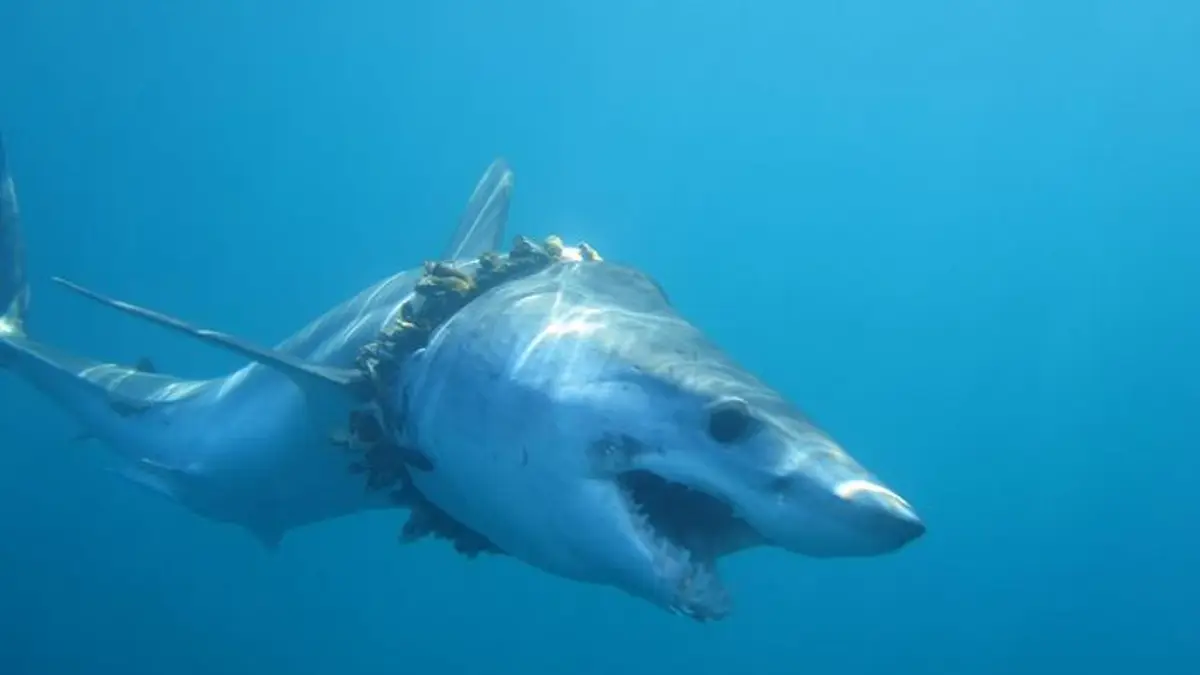Hundreds of sharks and rays entangled in plastic, scientists say
According to new research by scientists at the University of Exeter in the U.K., hundreds of sharks and rays are becoming entangled in plastic waste floating in the ocean. While such entanglement is a 'lesser threat' than commercial fishing, but point out how much suffering the former causes. The most common plastic to trap the sharks and rays was abandoned fishing gear.
Hundreds of sharks and rays are entangled in plastic waste in the ocean, according to new research.
Scientists at the University of Exeter in the United Kingdom analyzed existing studies and looked at Twitter, discovering more than 1,000 entanglements, although they said the actual number is probably much higher.
Researchers said such entanglement is a "lesser threat" than commercial fishing, but point out how much suffering the former causes.
A shortfin mako shark with fishing cord wrapped tightly around it is one example of what they discovered.
APOLLO 11'S MICHAEL COLLINS REFLECTS ON HISTORIC MOON LANDING

An adult shortfin mako shark entangled in fishing rope (biofouled with barnacles) in the Pacific Ocean, causing scoliosis of the back. (Courtesy of Daniel Cartamil)
"The shark had clearly continued growing after becoming entangled, so the rope, which was covered in barnacles, had dug into its skin and damaged its spine," said Kristian Parton, of the Center for Ecology and Conservation at Exeter, in a statement.
"There's a real animal welfare issue because entanglements can cause pain, suffering and even death," Parton added.
The most common plastic to trap the sharks and rays was abandoned fishing gear. Other waste included strapping bands used in packaging, polythene bags and rubber tires.
US MAY DUMP 1.5 TONS OF RAT POISON ON FARALLON ISLANDS TO HALT INVASIVE RODENTS
Researchers identified several factors that influence the vulnerability of a species — habitat, migration pattern and body shape.
The scientists' review discovered reports of 557 sharks and rays caught in plastic, spanning 34 species in oceans including the Atlantic, Pacific and Indian.
On Twitter, they found 74 entanglement reports involving 559 individual sharks and rays from 26 species, including great whites, whale sharks and tiger sharks.
The research was published in the journal Endangered Species Research.









































